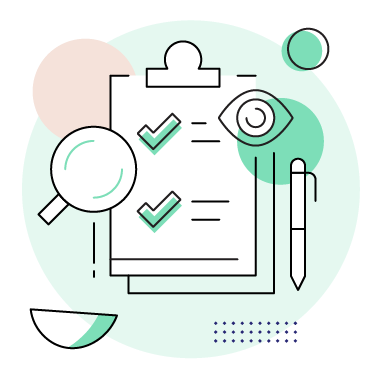The importance of real-world evidence (RWE) to commercial and regulatory outcomes as well as long-term product life-cycle management is well recognised. Amaris has significant experience in designing and implementing retrospective and prospective RWE studies to evaluate clinical, economic, epidemiologic, and patient outcomes. We understand the strengths and limitations of a variety of data sources and study designs, allowing us to advise you on what would work best for you. We have the capability to design and undertake multi-centred longitudinal studies as well as large-scale web surveys to collect clinical, patient, or economic outcomes leveraging data from multiple countries across Europe, North America, and Asia.
RWE analytics can have a significant impact on drug development and life-cycle management, providing clear efficiency gains for your company. In the age of digital health and virtual health care, the amount of accessible data will continue to grow exponentially.
We understand the intricacies of the most complex datasets to help you navigate the uncertainty around your strategy, decision-making, and information dissemination. Our team of data scientists generates deep insights using rigorous and innovative methodologies.
Examples of outcomes we can generate evidence for:
- Incidence/prevalence
- Burden of disease
- Quality of life
- Effectiveness/safety
- Treatment pattern
- Costs
- Cost-effectiveness
These insights can support:
- Product positioning and development strategy
- Regulatory or HTA submissions
- Scientific communications
- Communication tools
- Payer and market access strategy
Real-life data collection and analysis
Primary data collection
- Prospective data collection
- Web surveys
- Patient-reported outcomes
- Preference elicitation studies (i.e. conjoint analyses/discrete choice experiments)
- Interviews
Secondary data analysis
- Registry data
- Cohort data
- Administrative/claims data
- Electronic health records
- Medical chart reviews
Our worldwide expertise
- We have experience in databases in Europe, USA, Canada and several other countries
- We can perform feasibility assessment and database mapping
Our experience across various therapeutic areas
- Rheumatology (20%)
- Oncology (10%)
- Diabetes (10%)
- Dermatology (23%)
- Psychiatry (14%)
- Respiratory diseases (3%)
Focus on one type of project: Here is how we would typically conduct a retrospective database analysis at Amaris
- Step 1: Feasibility assessment (including sample size determination)
- Step 2: Study protocol
- Step 3: Submission to ethics committee
- Step 4: Statistical analysis plan
- Step 5: Data acquisition & management
- Step 6: Statistical analyses
- Step 7: Dissemination of findings
We believe that the following elements are our key success factors when performing biostatistics studies
- Multidisciplinary project teams working together to solve your research questions (clinicians, statisticians, epidemiologists, economists)
- We invest in our people: our analysts are certified to use large national and regional data sets (i.e. SNIIRAM (France), HCUP & Truven (US))
- Our rapid response unit ensures a fast turnover of data analyses following internal SOPs
- Our organizational structure is designed to ensure the highest quality of deliverables across all our offices
- We innovate in every aspect of our RWE analytics
- Using machine learning algorithms for: Social media listening on patient preferences, machine learning regression to predict hospitalization costs in large claims datasets, and we can predict individualized treatment pathways.
- Incorporation of RWE into network-meta-analysis when data from RCT are scarce or to improve network connectivity
- Usage of RWE to inform survival extrapolations in cost-effectiveness models (Guyot’s method)
Get in touch with us now to know our full spectrum of Life Sciences services, Click Here


